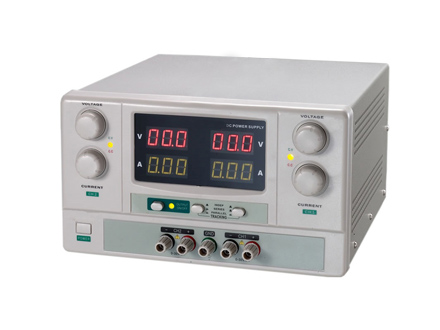Understanding DC Power Supply: A Key Component in Modern Electronics
2025-02-11
A DC power supply is an essential device that converts electrical energy from an alternating current (AC) source into direct current (DC) output. It provides stable and regulated power for various applications, including industrial automation, telecommunications, laboratory testing, and consumer electronics. The reliability and precision of a DC power supply make it a crucial component in modern technology.
What Is a DC Power Supply?
A DC power supply is designed to deliver a consistent voltage and current to electronic devices and circuits. It ensures that sensitive components receive the correct power levels, preventing fluctuations that could damage equipment. Depending on the application, these power supplies come in various designs, including linear, switching, and programmable models.
Types of DC Power Supplies
1. Linear DC Power Supply
This type provides a smooth and stable DC output by using a transformer to step down the AC voltage, followed by rectification and regulation. It is known for low noise and high precision, making it ideal for laboratory and medical applications. However, it tends to be larger and less efficient due to heat dissipation.
2. Switching DC Power Supply
A switching power supply converts AC power using high-frequency switching circuits, making it more efficient and compact. It is widely used in industrial automation, LED lighting, and telecommunications. While highly efficient, it may introduce some electrical noise, which must be managed in sensitive applications.
3. Programmable DC Power Supply
Designed for research and development, programmable power supplies allow users to adjust voltage and current levels via digital interfaces. They are commonly used in electronics testing, battery charging, and automated production lines where precise control is required.
Key Features of a DC Power Supply
1. Voltage and Current Regulation
A high-quality DC power supply offers stable voltage and current output, preventing fluctuations that can harm connected devices. Adjustable models allow users to fine-tune power delivery according to specific requirements.
2. Overload and Short-Circuit Protection
Many modern DC power supplies feature built-in protection mechanisms to prevent damage from overcurrent, overvoltage, and short circuits. These safety measures enhance the longevity of both the power supply and connected equipment.
3. High Efficiency and Low Heat Generation
Switching power supplies are designed to operate efficiently, reducing energy waste and heat output. This makes them suitable for continuous operation in demanding environments.
4. Multiple Output Channels
Some DC power supplies come with multiple outputs, allowing users to power several devices simultaneously. This is particularly useful in laboratory and industrial settings.
5. Digital Control and Monitoring
Advanced models include digital displays, remote control capabilities, and USB or Ethernet connectivity. These features enable precise monitoring and integration with automated testing systems.
Applications of DC Power Supply
1. Electronics Testing and Development
Engineers and researchers use DC power supplies in laboratories to test circuit designs, prototype new products, and troubleshoot electronic components. Programmable models offer flexibility for precise voltage and current adjustments.
2. Industrial Automation
Factories and production lines rely on DC power supplies to power control systems, sensors, and automated machinery. Reliable and regulated power is essential for maintaining smooth operations.
3. Telecommunications
Communication networks depend on DC power supplies to operate critical infrastructure such as base stations, routers, and data centers. Backup power systems often include DC sources to ensure uninterrupted service.
4. Medical Equipment
Many medical devices, including imaging systems and diagnostic tools, require stable DC power for accurate performance. Linear power supplies are preferred in medical applications due to their low noise levels.
5. Battery Charging and Renewable Energy
DC power supplies play a role in charging lithium-ion and lead-acid batteries for electric vehicles, solar power systems, and backup energy storage. Adjustable voltage settings help optimize charging efficiency.
Choosing the Right DC Power Supply
When selecting a DC power supply, consider the following factors:
- Output Voltage and Current: Ensure the power supply meets the requirements of your application.
- Efficiency and Heat Dissipation: Switching models are more efficient, while linear models offer better noise control.
- Safety Features: Overload and short-circuit protection are essential for long-term reliability.
- Control and Monitoring: Digital displays, programmable settings, and remote operation capabilities improve usability.
- Portability and Size: Depending on usage, compact designs are suitable for mobile applications, while larger units are preferred for industrial use.
Conclusion
A DC power supply is a fundamental tool in many industries, ensuring stable and reliable power for electronic devices and systems. Whether used in research, manufacturing, telecommunications, or renewable energy, choosing the right power supply can enhance efficiency, safety, and performance. With advancements in technology, modern DC power supplies continue to evolve, offering greater precision, control, and energy efficiency for a wide range of applications.



